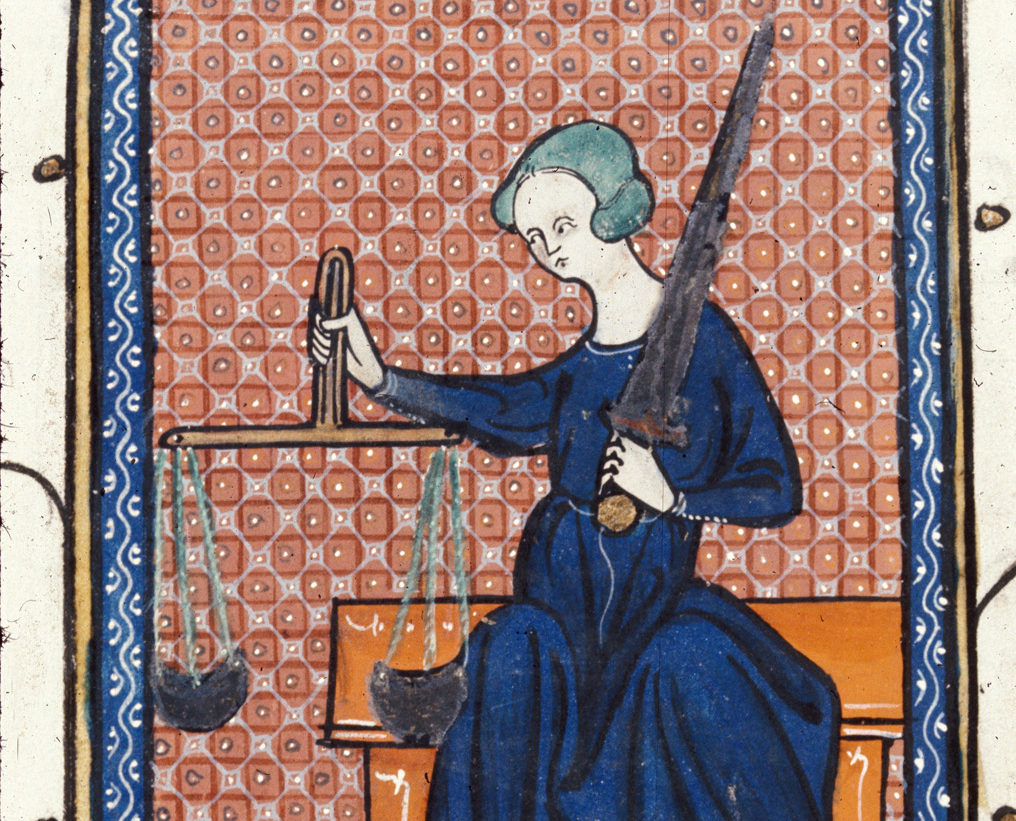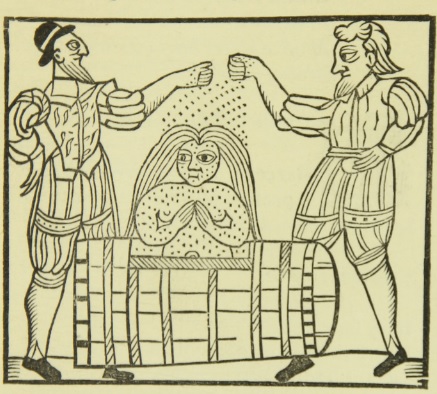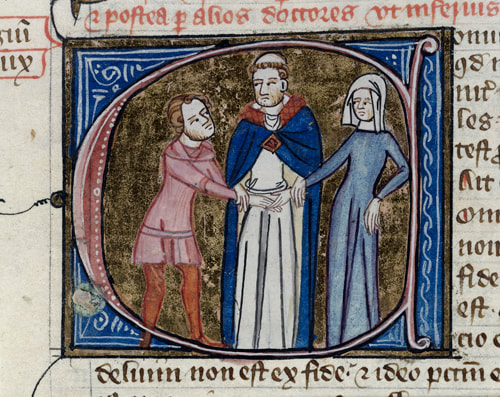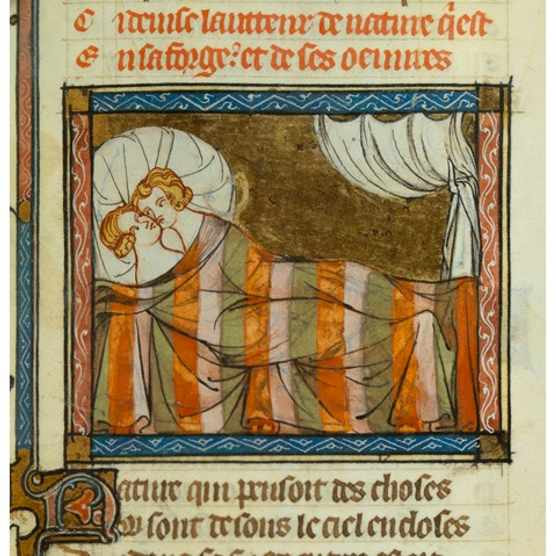|
This play was an absolute delight after the monotony of spousal abuse. Here, a lady with three suitors tells each of them to dress up in a different costume, a priest, a dead man, and a devil, and to meet her in the graveyard that night. The three show up, unaware of the other's intention, and hilarity ensues as they each mistake each other for the real thing. I enjoyed this play because the fun was essentially harmless, and the woman finally got a happy ending. It also underscores the care put into all aspects of the medieval performance that their masks and costumes would be believable enough to trick people into believing they were truly dead or a devil. It makes me wonder about the sophistication of other aspects of the production, and who took control of designing and creating these intricate costumes.
0 Comments
This farce is almost identical in premise to the Farce du Chaudronnier, in which a couple competes in a game of silence to be broken by a lecherous kettle-maker. The difference being that in La Farce des drois de la porte bodès, it is the woman who loses the bet, protesting that her husband did not speak up to save her from the advances of a judge. This farce takes it a step farther however, when the wife refuses to accept the conditions of the bet and the couple goes to court, only to be seen over by the same judge. The judge rules in the woman's favor with a wink and a nod to the husband, establishing the wife's dominion over the house. Like most farces of the period though, the humor comes from the fact that it would be laughable to give women so much power and free will.
While its subject matter is rather crude, La Farce nouvelle et fort joyeuse du Pect is actually rather sophisticated in terms of its litigation argument. After his wife breaks wind in his house, the indignant husband drags her to court, accusing her of upsetting the tranquility of his home. The judge rules that as man and wife are of the same flesh, therefore, all belonging to the wife's body is the responsibility of the husband. No doubt this was a comment on the unnecessary litigations common of the period, but it also reflects some interesting thoughts about men, women, and marriage.
This charming play is hilarious because unlike previous farces that were based on scatalogical jokes or sexual innuendos, this play is based on the naiveté and stupidity of its two male protagonists. The two men are extolling the sweetness of their wives when they begin to worry that they may be too sweet and unable to ward off untoward advances. They take the women to a professor to have them "salted" to cure them of their sweetness. The doctor uses this as a chance to seduce the two women, who rebuff him and resolve to be "saltier" to their husbands, leaving the doctor's office to beat them senseless. This play combines the premise of not knowing how good one has it and the gullible nature of people to believe outlandish cures. The women prove the men wrong by rebuffing the doctor despite their sweetness, and showing that the true folly was the men's inability to communicate with their wives.
Like Le Trocheur de maris, Les femmes qui font refondre leurs maris takes a dip into the surrealist genre. Two women, sick of their old and impotent husbands, take them to a bellmaker to be melted down and recast as younger men. While this works, the kind old men come out as young brutes on the other end who beat their wives into submission. To a modern audience, this play comes off as a tragedy, as do so many of the farces built on the backs of women's suffering. But the interest here in the manipulation of the body and the possibility of interfering with the natural process is a fascinating question that brings to mind stories such as Frankenstein or the Fly. While it is often thought that those stories were inspired by leaps in the scientific world, it is interesting to remember that medieval persons were also interested in the ability to alter the body by human means and the power humans used (or misused) a propos to their own mortality.
One of the few plays that offers female protagonists, Le Trocheur de maris is a delightful play about three women who decide to trade in their old husbands for new at the shop of the Husband Trader. Unfortunately, none are to their liking and they decide to remain instead with the men they started with. Rather than simply the typical sexual and scatalogical innuendo that I have come to expect from farces, Le Trocheur de maris adds a flair for the surrealist that we will find in several other farces from this period. The idea that there is such a man as a Husband Trader opens the genre up to more absurdist kinds of comedy that poke fun at the fabric of society instead of the bodily functions of its inhabitants. This sort of absurdism in French theatre persists to this day, and the theme of the impossible as commonplace only becomes funnier with time.
One of the things that I have found most puzzling in the farces of the 16th century is the general lack of logic or plot. Not only are they generally too short to contain anything complicated, but they also follow completely illogical premises in order to get them to the joke's punchline. The same may be true of this farce where one husband complains about how awful his wife is and the other brags about his wonderful spouse, but somehow they agree to switch. Within the genre of spouse swapping, this play is by far the most confusing as the characters lack any sort of consistency and the plot is an afterthought to the jokes which are principally based on beating a spouse or sexual innuendos. Looking forward to the next century, I think one could argue that the greatest achievement of Molière was simply adding a sense of logic and plot to his comedies, making them a story to follow as opposed to a barely connected thread of sex jokes.
|
Jennifer KellettM.A. French Literature Florida State University Archives
June 2021
Categories |
Photos used under Creative Commons from mharrsch, Renaud Camus







 RSS Feed
RSS Feed
